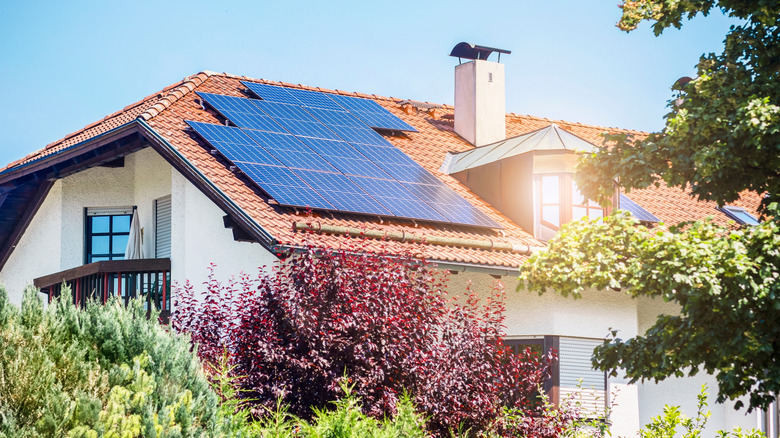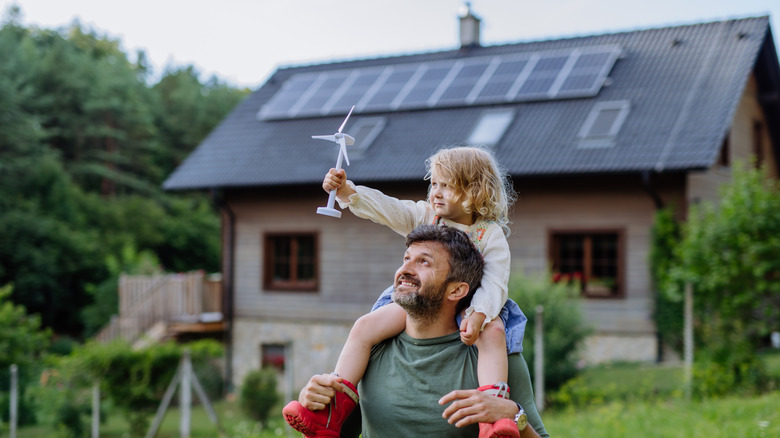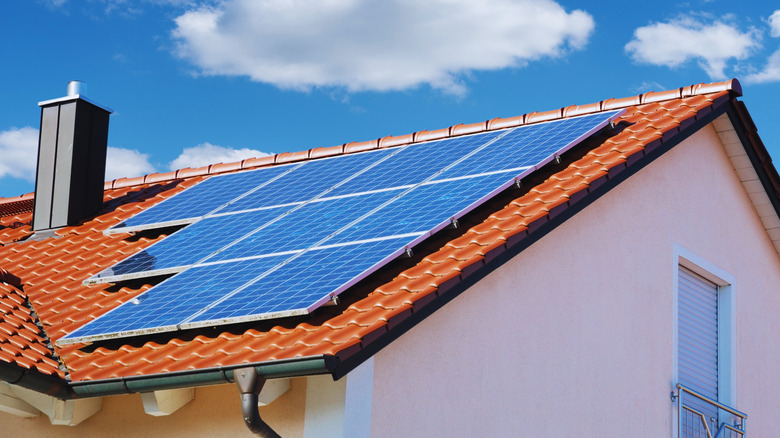Thinking Of Buying A House With Solar Panels? Here Are The Most Important Things To Know
Buying a home is not an easy decision, and there's more to consider than curb appeal, location, or square footage. Sustainability is another key factor. According to the National Association of Realtors (NAR), more than half of clients show interest in eco-friendly features, including solar panels.
Solar panels not only add value to a property but also reduce electricity costs and reliance on the grid. On paper, this might sound like a win-win — a home that's both cheaper to power and eco-friendly. However, it's worth noting that buying a home with panels isn't as simple as it seems.
Generally speaking, solar panels are frequently marketed as valuable selling points, but not all installations are equal. In fact, the distinction mainly lies in the ownership structure.
When you buy a home with solar panels that are part of the property, for instance, you'll reap the full benefits immediately. Think of tax benefits and utility bill savings. On the other hand, if you buy a house with a leased solar system, you'll enjoy lower utility bills, but you'll still need to make ongoing lease payments.
Consider the condition of the solar panels
Once you know whether the system is leased, check its condition. The older the solar panels are, the more likely they are to malfunction. Most panels will last for 25 years or more before they start to show their age.
Of course, you can usually keep using them even after they've reached their end-of-life period. Solar panels usually only deteriorate at the rate of 1% to 3% per year, although this varies depending on type, brand, and weather conditions.
Aside from the panels themselves, look into the condition of things like batteries and inverters. Unfortunately, these components will wear out faster than panels. String inverters typically last 10 to 15 years, while solar batteries last five to 15 years.
If you're buying a home with a 15-year-old solar system, keep in mind that you may have to budget for possible repair costs down the line. Don't forget to ask the seller to provide detailed maintenance and repair records. Regular servicing is a clear indicator of efficiency and long-term performance.
Check the warranty and the cost
Buying a house with a solar system can be a smart investment. EnergySage reports that most owners save between $34,000 and $120,000 over the system's lifetime. To figure out how much you might be able to save, ask the seller to provide you with past utility bills. This gives you a clear picture of your potential savings and how many solar panels are needed to power your home.
You'll also want to verify the warranty coverage for the panels and the inverter. Solar panel warranties vary, but you can generally expect 10 to 30 years of coverage. Inverters, on the other hand, come with warranties ranging from 10 to 25 years.
Some warranties can be transferred to you as the new homeowner, and that's the ideal scenario. Doing so might cost you extra money, though. However, if the warranties can't be transferred, factor that risk into your decision-making.
You should also consider net metering, which can add even more value to your solar system. It lets you send any unused electricity generated by your solar panels back to the grid in exchange for credits on your utility bill. Over time, this can offset your energy costs.


